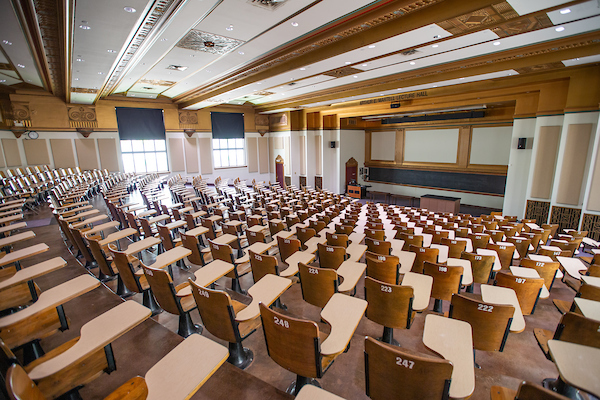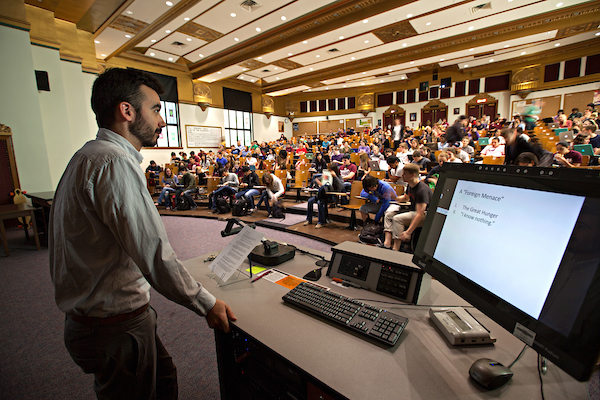Formal mentoring programs enhance faculty recruitment and retention and strengthen a faculty member’s relationship with the department and its missions (1-3). Academic leaders, in particular, play a pivotal role in the direct and indirect mentorship of faculty. Establishing a formalized faculty mentoring approach is essential given the rapidly changing landscape of higher education and the ever-increasing pressures on faculty.
Leading a Mentoring Culture has been developed to support academic leaders who seek to grow as mentors and ultimately create, improve and implement a formal mentoring plan while fostering faculty engagement in the program. This program will engage academic leaders to develop programs within their academic units using evidence-based skills and approaches to mentoring and retaining faculty.
This program includes:
- Creation (or improvement) of a formal mentoring plan across ranks and titles
- Recurring monthly 2-hr sessions January to June
- A scenario-based curriculum that aligns with the mentoring challenges faced by academic leaders
- Concise pre-work and follow-up assignments to support the design and implementation of a formal mentoring plan
- Networking and opportunities for confidential dialogue with other academic leaders selected to maximize representation of disciplines and a diversity of years of experience
- A professional development bursary of $3000, which may be used by the participant for either their own professional development activities or provided to one or more of their faculty for professional development expenses. Bursary award contingent upon engaged completion of all the sessions and associated assignments.
Academic leaders accepted into this program commit to:
- Prepare for and participate in six facilitated, interactive, sessions.
- Develop self-awareness of evidence-based mentorship competencies for mentoring faculty.
- Design (or improve an existing) formal mentoring plan, inclusive of identifying ways to encourage engagement among faculty.
- Participate in a follow-up interview 12 months after completion.
Eligibility
The Leading a Mentoring Culture program is intended for academic leaders (e.g., department heads, associate department heads, program chairs) who have responsibility for faculty mentoring, faculty affairs, or contribute to the mentoring of academics across all ranks and classifications. Applicants must commit to attend and participate in all sessions.
Facilitators
- Michael Johnson, Ph.D., interim associate provost for faculty success and professor, Engineering Technology & Industrial Distribution, College of Engineering
- Heather Lench, Ph.D., senior associate provost for Faculty Affairs and professor of Psychological and Brain Sciences, College of Arts & Sciences
- Clint Patterson, Ed.D., instructional consultant, Center for Teaching Excellence
- Heather Wilkinson, Ph.D., associate vice provost for Faculty Affairs and professor of Plant Pathology and Microbiology, College of Agriculture and Life Sciences
References Cited
- Bland, C.J., Taylor, A.L., Shollen, S.L., Weber-Main, A.M., & Mulcahy, P.A. (2009). Faculty success through mentoring: A guide for mentors, mentees, and leaders. Lanham, MD: R&L Education
- Fountain, J. & Newcomer, K.E. (2016). Developing and sustaining effective faculty mentoring programs. Journal of Public Affairs Education. 22(4), pp. 483-506.
- National Academies of Sciences, Engineering, and Medicine. (2019). The science of effective mentorship in STEMM. The National Academies Press. https://doi.org/10.17226/25568
Additional Resources on Mentoring Faculty and Students
Women's Faculty Network Mentoring Program at Texas A&M
The Women's Faculty Network at Texas A&M has a mentoring program for women faculty. Tenured faculty members volunteer to be mentors for junior faculty.
Center for the Improvement of Mentored Experiences in Research (CIMER)
Texas A&M has been working with the Center for the Improvement of Mentored Experiences in Research (CIMER) to improve the way that TAMU faculty think about mentoring. In the Fall of 2019, several dozen faculty participated in Mentoring Facilitator Training Program with CIMER. Since then, Texas A&M has developed a "Culture of Mentoring" initiative, which includes the Faculty Mentoring Academy and the Graduate Mentoring Academy.



